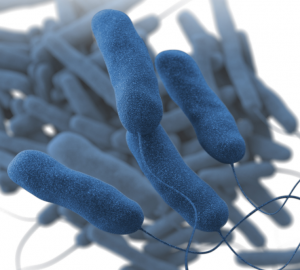NewsDesk @bactiman63
As part of an ongoing investigation by the New Jersey Department of Health (NJDOH) into Legionnaires’ disease among residents in Mercer County in areas served by Trenton Water Works (TWW), seven cases of Legionnaires’ disease have been reported between October 2022 and March 2023. The seven cases occurred in Trenton, Ewing Township, Lawrence Township, and Hamilton Township. Of the seven, two individuals have died.

Image/CDC
Health officials from NJDOH have briefed elected representatives at the local and State level on this matter and will continue to collaborate with them throughout this ongoing investigation.
NJDOH continues to urge all residents and building owners who receive water from TWW to follow the recommendations outlined below to reduce the risk of Legionella growth, the bacteria that causes Legionnaires’ disease, in their household and building premise plumbing. Residents who do not know their water utility company can check their water bills; renters can ask their property owners.
While it remains rare for a healthy person who is exposed to Legionella to become sick with Legionnaires’ disease, people who are 50 years or older, especially those who smoke, or those with certain medical conditions, including weakened immune systems, chronic lung disease or other chronic health conditions, are at increased risk. It is not known if individuals with Legionella detected in their homes are more likely to develop Legionnaires’ disease.
Legionnaires’ disease is a type of pneumonia (lung infection) that people can get after breathing in aerosolized water (small droplets of water in the air) containing Legionella bacteria. People cannot get Legionnaires’ disease by drinking water that has Legionella. Less commonly, people can get sick when water containing Legionella is aspirated into the lungs while drinking (“goes down the wrong pipe”).
Symptoms of Legionnaires’ disease include cough, shortness of breath, fever, muscle aches, and headaches, which are similar to symptoms caused by other respiratory infections, including COVID-19. Legionnaires’ disease can be fatal but is treatable with antibiotics. It is important for anyone who thinks they have symptoms of Legionnaires’ disease to contact their health care provider and seek medical evaluation immediately.
Subscribe to Outbreak News TV on YouTube
Health officials continue to urge health care providers to collect lower respiratory specimens for Legionella PCR and/or culture, in conjunction with use of the urinary antigen test, when suspecting Legionnaires’ disease. This is especially important among residents who receive water from TWW. The urinary antigen test is the most common diagnostic method but can only detect Legionella pneumophila serogroup 1. PCR and culture of lower respiratory specimens can detect all Legionella species and serogroups.
- Mycobacterium marinum infection after iguana bite: Case report
- South Africa cholera update: Total cases rise to 10, All new cases are locally transmitted
- Paraguay chikungunya: More than half the cases reported are outside of Asunción and Central
- CDC issues travel notice (Alert Level 2) for Equatorial Guinea due to expanding Marburg outbreak
- Argentina’s dengue and chikungunya situation, Actions to contain outbreak
- Chile report on stranded marine animals dead due to avian influenza situation
- Lyme disease: White-tailed deer blood kills Borrelia burgdorferi bacteria
- Salmonella Outbreak Linked to Flour

